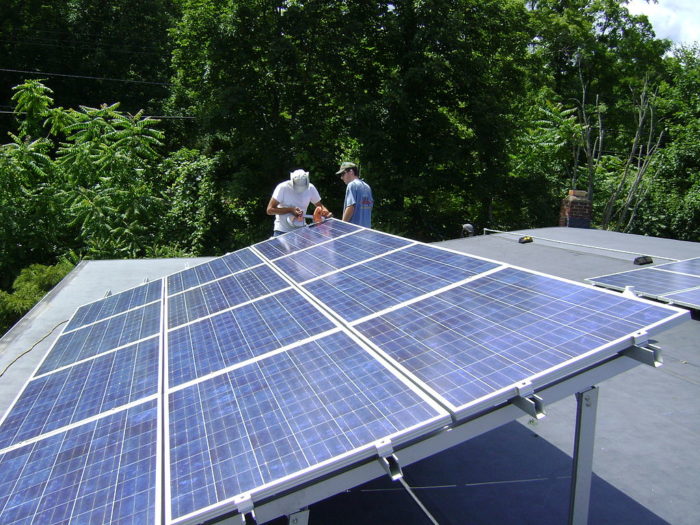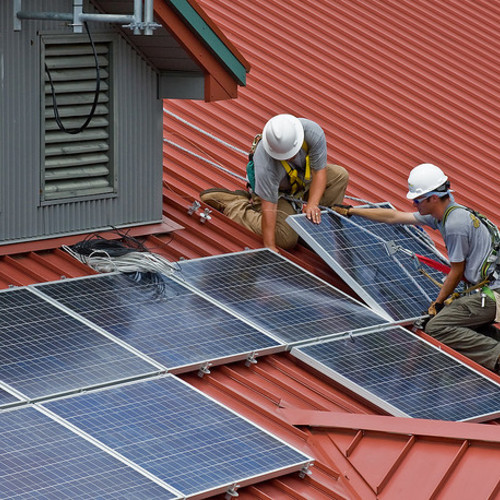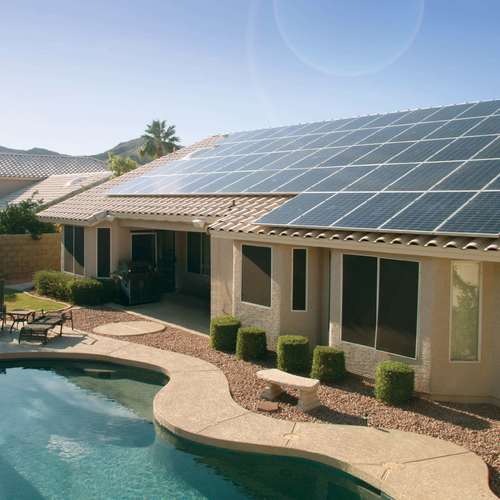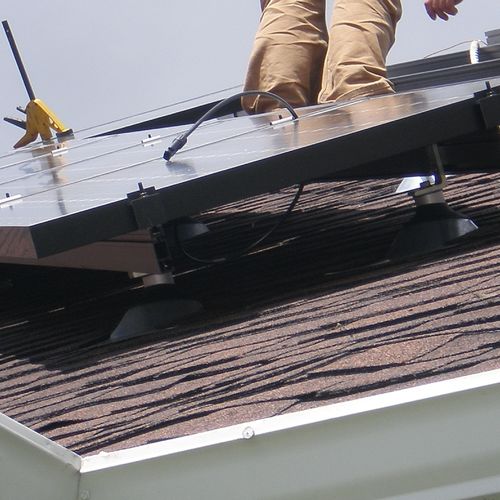
Image Credit: Lucas Braun - Wikimedia Commons
Two groups seemingly on opposite sites of the renewable energy divide have called on state utility regulators to adopt rate plans that encourage more renewable energy while protecting the financial interests of the companies that buy and distribute it.
In a joint statement, the Edison Electric Institute (EEI) and the National Resource Defense Council (NRDC) said the future of the country’s electricity industry would remain promising “as long as regulatory policies are fair and forward looking.”
EEI represents the country’s investor-owned electric utilities, which together supply electricity to 220 million people in all 50 states. The NRDC is an international nonprofit environmental organization with more than 1.4 million members.
In a number of states, dealings between major utilities and backers of residential photovoltaic (PV) systems have been anything but warm and fuzzy. Utilities complain that as residential solar installations increase, there’s less money coming in to maintain the grid, and that non-solar customers have to pick up a bigger share of the load. For their part, homeowners and PV installers have resisted utility efforts to make them pay more for utility connections or accept less for excess power they produce.
The debate over what’s called “distributed generation” (DG) has played out in Arizona, North Carolina, Hawaii, California, and elsewhere. According to a post at UtilityDive.com, it’s one of the most challenging issues regulators face.
The statement, issued on February 12 at meeting of the National Association of Regulatory Utility Commissioners in Washington, D.C., looks for common ground in what’s shaping up to be a bitter struggle.
It’s ‘no longer about selling more electricity’
“If properly done, utilities can adapt to the changing needs of customers, modern electricity systems, and technologies, while continuing to deliver safe and reliable service, maintain financial integrity by allowing costs of service fairly among customers, and continuously improve environmental performance,” the statements says.
“But utility regulatory and business model changes are necessary to accelerate progress and ensure transparent and equitable attainment of these objectives.”
The groups made a number of recommendations, among them:
- Electrical distribution shouldn’t be viewed as a “commodity business” in which utilities stay afloat financially by selling more power. Instead, the business model should be to “focus on meeting customers’ energy service needs.” Rate structures should allow utilities to maintain and improve the grid.
- Owners and operators of on-site renewable energy “must provide reasonable cost-based compensation for the utility services they use, while also being compensated fairly for the services they provide.”
- Utilities should be able to recoup non-fuel costs despite fluctuations in the use of electricity. At the same time, “customers deserve assurances that costs will not be shifted unreasonably to them from other customers.”
- Regulators should be open to opportunities to support utility investments in smart meters and a smart grid, which will improve energy efficiency.
In a blog explaining the announcement, Ralph Cavanagh, NRDC’s energy program co-director, said the point is “that the electric utility business can no longer be about selling more electricity.”
“Instead,” he writes, “it needs to be about ensuring that people have reliable and steadily improving electricity services (starting with heating, lighting and cooling) and better environmental quality. That, in turn will require getting more work out of less electricity through energy efficiency and also creating diversified clean energy resource portfolios — such as wind, solar and geothermal — that are second to none in overall reliability.”
The most recent statement amends two earlier versions issued in 2003 and 2008. Cavanagh says those joint declarations were aimed at improving energy efficiency and clean energy investments.
It’s all a lot more complicated than it seems
The two groups call on regulators to allow utilities to collect “reasonable” fees for grid services while ensuring that homeowners are compensated “fairly” for the power they sell. But as Ethan Howland writes in his post at Utility Dive, “Do you think defining ‘reasonable’ and ‘fairly’ is going to be easy?”
Further, Howland points out that some of EEI’s members have sought limits on net metering, regardless of the support it gets in the EEI/NRDC statement.
Hearings before Arizona regulators have brought these issues into sharp focus. Last year, the Arizona Corporation Commission okayed a new fee on solar customers beginning this year, although it wasn’t nearly as much as the utility had requested. The commission continues to study the cost and benefits of distributed generation, so the fight there is hardly over.
In a February 14 filing related to that inquiry, EEI said that distributed generation will play a bigger role in the nation’s overall power mix, and added, “current policies that create cross-subsidies among customers are neither equitable nor sustainable.”
EEI said incentives such as net metering have served their purpose and are no longer needed, adding that advocates of rooftop solar are pursing a double standard. “Essentially, they argue that the benefits of DG should be priced on the basis of value, while benefits of electricity service as well as other generation resources, should be priced based on their cost,” the EEI filing said. “This approach is fundamentally unfair, unduly discriminatory and inconsistent with the traditional approach to regulation.”
In other words, finding a middle ground that both electric utilities and advocates of rooftop solar can live with isn’t right around the corner — joint statement or not.
Weekly Newsletter
Get building science and energy efficiency advice, plus special offers, in your inbox.















0 Comments
Log in or create an account to post a comment.
Sign up Log in